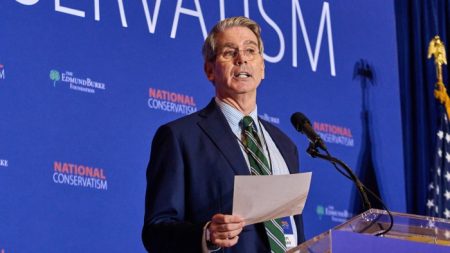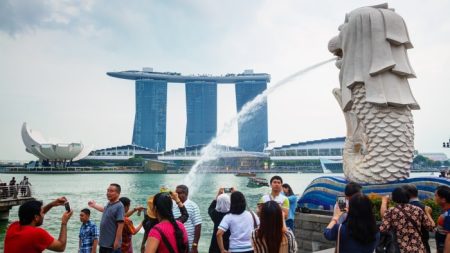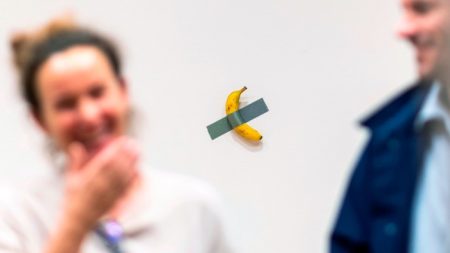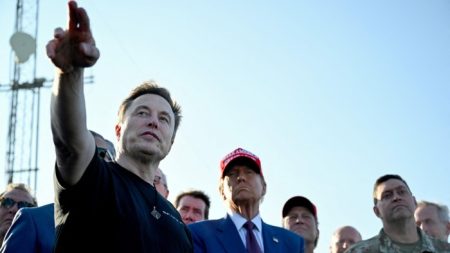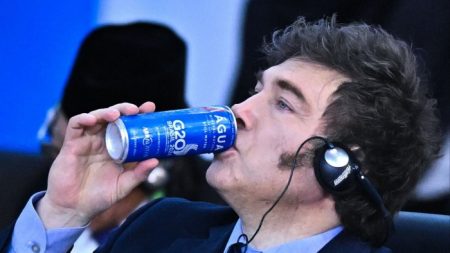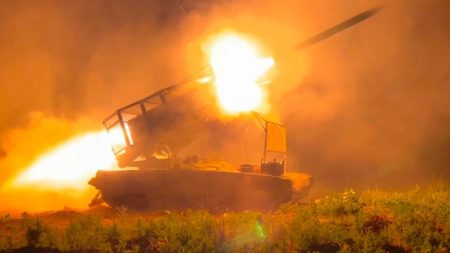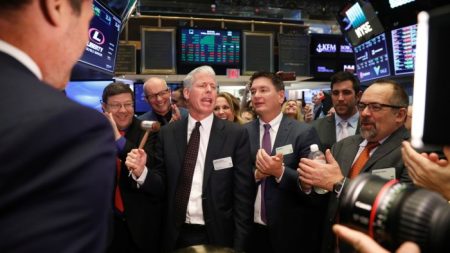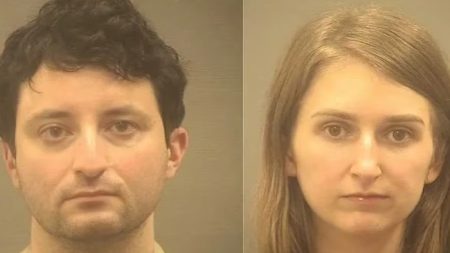South Africa’s governing African National Congress admitted it had been “humbled” by its worst general election performance since the first post-apartheid vote 30 years ago, but that it would not be “bullied” into axing President Cyril Ramaphosa.
The election was formally declared on Sunday night, with the ANC winning just 40.2 per cent, a result that one senior party member said had sent “shockwaves” through the organisation. In the end, 58.6 per cent of the 27m eligible voters cast their ballot.
The centrist Democratic Alliance came in second with 22 per cent. But the big winner was the uMkhonto weSizwe (MK) party launched six months ago by former president Jacob Zuma, which surged to 14.6 per cent.
Zuma, who was declared ineligible to stand because of a previous criminal conviction for contempt of court, has said MK would be willing to form a coalition with the ANC, but only if it were to ditch Ramaphosa, with whom he has a vendetta.
The ANC, whose top decision-making body, the National Executive Committee, will meet on Tuesday to conduct an autopsy of its poor performance and discuss coalition options, was resolute this would not happen.
“Ramaphosa is the president of the ANC,” Fikile Mbalula, its secretary-general, said on Sunday. “If you come to us with a demand that Ramaphosa must step down as president, that’s not going to happen.”
Of coalition talks, he said: “We will not be bullied . . . we’ll engage with everybody”.
Analysts say Ramaphosa is under intense pressure after his party suffered a worse than expected 17 percentage point fall, from 57.5 per cent in 2019. This represented “a seismic shift in politics”, said law professor Richard Calland.
One party insider told the FT the ANC needed to rebuild, which would be a “culture shock for many”. But he also said “this talk of Cyril falling on his sword is bullshit”.
Ramaphosa himself appeared for the first time in days on Sunday night, speaking at the closing of the poll by the Electoral Commission (IEC). He said “what this election has made plain is that the people of South Africa expect their leaders to work together” and find common ground — a reference to the new era of coalitions.
Despite calls to quit, Ramaphosa appeared relaxed and unflustered. After one IEC official mistakenly used the word ‘extinguished’ rather than ‘distinguished’, Ramaphosa joked that “I’m not yet extinguished”.
The MK party’s sudden elevation on to the national stage, based on a radical platform of scrapping the constitution drawn up after apartheid, and nationalising mines and banks, has rattled investment markets.
Economists said the rand, which fell more than 2 per cent after the election to R18.79 to the dollar, was braced for a rocky start to the week.
Despite his party’s strong showing, Zuma has demanded a recount citing irregularities. He also threatened “trouble” if the Electoral Commission declared the final results as planned.
Zuma, who was president in 2009-18 when state assets were looted, said that would be a “provocation” for his party and 25 others that have also issued objections.
Most independent analysts consider any irregularities minor.
“I am hoping whoever is responsible is hearing us. Don’t start trouble when there is no trouble,” Zuma said.
Many commentators took this as ominous, given the riots that exploded across South Africa in 2021 after he was imprisoned for refusing to take part in a commission of inquiry into the corruption that raged under his presidency.
Mosotho Moepya, chair of the IEC, made no reference to Zuma’s threat as he declared the elections free and fair on Sunday night. Moepya said the IEC itself had also come under fire, withstanding “attempts to undermine the credibility of the institution” and “bare acts of intimidation”.
Herman Mashaba, leader of the ActionSA party, which won 1.2 per cent of the vote, said: “After what happened in July 2021, after he was imprisoned, to use such threats is treasonous. Especially given how the ANC has treated him with kid gloves.”
Mashaba said that, while there had been “glitches”, the election was free and fair. “There is no evidence otherwise,” he said.
On Sunday, DA leader John Steenhuisen said his party had agreed to open “exploratory talks” with parties that “share a commitment to the South African constitution” to form a coalition government and avert a “doomsday coalition” between the ANC, MK Party and EFF.
While these talks would presumably include the ANC, Steenhuisen said it would not include the MK Party and EFF. “Burying our heads in the sand while South Africa faces its greatest threat since the dawn of democracy is not an option,” he said.
Some ANC members are understood to favour a deal with MK and the EFF, but one Ramaphosa ally said they were in a minority.
“We need to put the country first,” the person said. “A majority of sensible people in the ANC will agree with that, but there’s a flip side of those in the NEC who want to create a situation where they can continue to loot. For them this is not about democracy but to create an opportunity to loot and to avoid prosecution.”
Read the full article here






